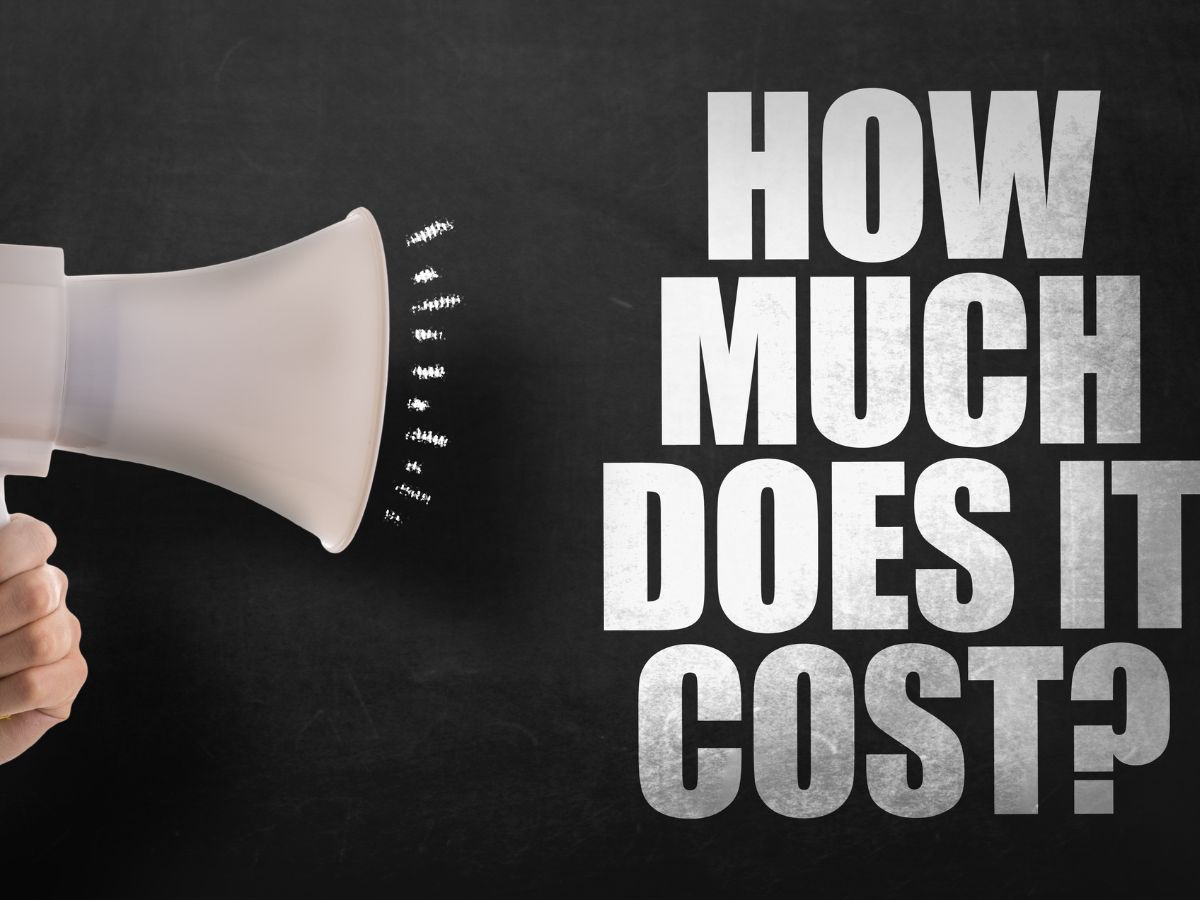Finding an event speaker, whether it be a conference, seminar, corporate meeting, or any other kind of public event, is a significant venture that can have a significant impact on its success. A charismatic and interesting professional speaker has the power to engage an audience, impart insightful knowledge, and leave an enduring impression. This resource will give you a thorough road map, divided into several sections, for finding an event speaker and ideal selection procedure.
How to choose the ideal speaker for your event?
Step 1: Establish Your Goals
Clarifying your event’s goals is crucial before you start looking for a speaker. Think about it:
- What is the primary objective of the event?
- Is your goal to inform, uplift, amuse, or inspire your audience?
- Whom are you trying to reach? You can select a speaker who will connect with your audience by being aware of their demographics, interests, and expectations.
- What subjects or ideas would you like the speaker to cover? Determine the main topics that relate to the goal of your event. Here are interesting topic ideas for speech.
- How much can you spend? You can reduce your alternatives by already knowing your financial limitations.
Step 2: Investigations and Idea Generation
Research potential speakers and come up with a list of them once you have a clear understanding of your goals. Here’s how to do it successfully:
- Utilize Your Network: Ask for referrals from people in your professional network, workplace, and industry. They might be able to offer personal insights or recommend credible speakers.
- Solicit the Audience: You could be surprised to find suggestions you may have not considered when you take the time to ask your audience who they might want to hear from. Unavoidably, members of your audience will have colleagues in the field they are learning about who could be a fantastic asset to your event. If you have an online community, you may ask them there, send them mail with a form they can fill out, or just physically approach a few individuals you know.
- Employ Speaker Bureaus: Speaker bureaus are companies that are experts at matching event planners with speakers. They can help match the requirements of your event with their extensive collection of speakers from a variety of fields.
Here are the top public speaking coaches and Courses for you.
- Online Resources: To find an event speaker, check out websites like LinkedIn, Twitter, and speaker directories for events. Try searching for terms associated with your event to find potential applicants. Finally, you may just Google search for the best speakers in your sector. The hiring of many is handled through speaker agencies. They frequently have entire websites devoted to speaking engagements, with information on their distribution, topics they cover, fees, and how to get in touch with an agency to book them.
- Attend Other Events: To observe speakers in action, go to conferences or seminars that are connected to your field. This can make it easier for you to spot intelligent and interesting people. Check out the list of upcoming events nearby for keynote speaker sourcing.
Step 3: Assess the Speaker’s Capabilities
It is critical to assess each speaker’s credentials and applicability for your event as you develop a list of potential speakers. Here are some important things to think about:
- Review the speaker’s credentials, experience, and knowledge on the subject you want them to speak about. Verify any applicable degrees, prior work experience, and noteworthy accomplishments.
- Reputation: Look for endorsements from former event planners or attendees who can attest to the speaker’s potency in the form of testimonials, reviews, or references.
- Style and Delivery: If available, watch footage of the speaker in action. Examine their delivery, speaking style, and audience engagement skills. A speaker with charm and energy can make a bigger impression. Here are the 6 tips to presenting a workshop effectively, a guide for selecting the best keynote speaker in speech delivery.
- Flexibility: Make sure the speaker can modify speech to fit the demands and objectives of your event.
Step 4: Contact and Communication
It’s time to contact any possible speakers who fit with your goals once you’ve discovered who they might be. How to go about this stage is as follows:
- Send a Brief Email or Message: introduce yourself and your event as the first point of contact. Give a brief description of the event and express your interest in having them speak.
- Ask About Availability: Inquire about their availability on the day of your event. Make sure they don’t have any conflicting commitments.
- Discuss Terms: If they show interest, talk about the speaker’s price, travel costs, lodging, and any other managerial considerations. Make sure their terms fit your budget.
- Outline Your Expectations: Clearly describe your expectations for the subject, presentation style, length, and any unique demands. Be receptive to their comments and input.
Step 5: Examine and Choose
You’ll most likely get responses from multiple speakers after early communications. It’s time to analyze and choose at this point. Think about the following:
- Fit with Objectives: Consider how successfully each speaker fits the goals and target audience of your event.
- Check cost and gains: Analyze the costs and benefits of each speaker in relation to the contribution they make to your event.
- Identify References: Contact previous event planners or attendees who have collaborated with or listened to the speaker to get references and testimonials. Always have alternate speakers in mind in case your initial option is unable to speak or if discussions fail.
Step 6: Finalize and Contract
It’s time to confirm the speaker and formally sign the agreement when you’ve made your choice. What you must do is as follows:
- Formal Agreement to be Sent: Create a contract with all terms, including the speaker’s fee, travel and lodging arrangements, presentation specifics, and any other pertinent information. Make sure the contract is signed by both parties. In the alternative and as a good option, we advise that you contact an Attorney for a contract template or use legal documents created by attorneys on platforms. Examples are Legal Zoom, LawDepot, etc. This measure will ensure that contracts are binding.
- Terms of Payment: Set up a schedule and terms for payments. Choose whether the speaker will be paid in advance, during the event, or after. Also, decide how and when. Negotiate the details of their engagement, such as the fees, travel plans, lodging, and any other unique requirements.
- Travel and Lodging: Arrange and confirm the speaker’s travel and lodging arrangements as well as any special needs. Make sure all the arrangements are made. As the event date draws near, keep the lines of communication open with the speaker to address any queries or worries they may have. Make sure your speaker schedule reflects equality and inclusion and is consistent with the values and objectives of your event. Diverse viewpoints can improve your attendees’ overall experience.
- Confirm Speaker Objectives: Inform the speaker about the event’s specifics, goals, and audience. Work together to make sure the presentation satisfies the objectives of your event.
Step 7: Work with your selected speaker.
- Collaboration on Content: Discuss the presentation’s content with the speaker. Share any details or themes unique to the event that they should cover in their speech.
- Technical Prerequisites: Ensure that the location has the audiovisual resources and technical assistance required for the speaker’s presentation. Here are the best video production equipment for events in 2024.
- Introductions: Develop a dynamic opening for the speaker that establishes the scene and gets the audience excited. Obtain points from the speaker that he/she would like included in their introduction. Share the introduction with the Speaker in advance for their approval.
Step 8: Executing the Event Day
Make sure everything goes smoothly on the day of the event:
- Arrival of Speaker: Verify the speaker’s availability on the event day and check all logistical information, such as the necessary equipment, the structure of the presentation, and any audiovisual specifications. Make sure the speaker gets there early enough to settle in and take care of any last-minute issues.
- Speaker Introduction: Introduce the speaker to the audience with passion and give a quick rundown of their qualifications.
- Support: Provide a point of contact who can help the speaker with any unforeseen requirements or problems throughout the event.
To create the best atmosphere at your event, here is the best event music to play.
Step 9: Evaluation and Follow-Up After the Event
After the meeting, poll the audience and the speaker for their opinions.
- Gather Feedback from the Audience: this will allow you to assess the speaker’s effectiveness and the audience’s reaction to their presentation.
- Feedback from the Speaker: Talk with the speaker after the event to get their thoughts on the event and audience. This may be helpful for upcoming partnerships.
- Settlement: Ensure that any unpaid fees owed to the speaker are quickly processed in keeping with the terms of the agreement.
Step 10: Ongoing Development
Lastly, make improvements to future events using the knowledge you got from working with your event speaker:
- Success Evaluation: Evaluate how well the speaker helped your event accomplish its goals. Keep a record of what went well and what may need improvement for future use.
- Build Relationships: Keep in touch with speakers you’ve collaborated with in a favorable way for potential future projects.
How much does it cost to hire an event speaker?
Hiring an event speaker ranges between $600 to $2,500 for mid-level speakers, while the cost to hire an expert event speaker is between $5,000 to $10,000.
The beneficial and substantial payment that the speakers receive as compensation for the time and effort they put into speaking at your event is known as speaker fees.
With respect to the type of speaker you hire, speaker costs for online events can vary greatly. The speaker payment system for live events and online events does in fact change noticeably.
These are frequently worked out with the speaker’s agent or other form of representation. However, there is still a definite distinction between the speaker fee structures for online and live events.
How much does a speaker for a virtual event cost?
The price of hiring a virtual event speaker can differ greatly depending on a number of variables, such as the speaker’s notoriety, area of specialization, level of experience, and the demands of the event.
In general, speaker fees for online events should be half to seventy percent less than what they would be for in-person events. Thus, if you are paying a speaker $4,000 for a physical event, they would cost around $2,000 to $2,800.
Negotiate terms that fit your event’s budget and goals after bringing up these points with prospective speakers. For high-demand or celebrity speakers, speaker fees can range from a few hundred dollars to several thousand dollars ($15,000 to $45,000) or even more.
Consider the overall event budget, the projected return on investment (ROI), and the value the speaker can provide to your occasion in the areas of audience engagement as well as material quality when setting a speaker budget for a virtual event. Speakers may be prepared to collaborate with you to develop a mutually advantageous agreement if you are open with them about your financial limitations.
The price of a virtual event speaker will ultimately rely on your unique requirements and the speaker’s fee schedule. To guarantee that you get the very best value for your event, it is crucial to conduct your homework, seek quotes, and negotiate. The following are some important variables that can affect how much a virtual event speaker costs.
Variables that affect the fee for virtual event speakers
Speaker’s Reputation and Fame: Considering their fame and the attraction they bring to your event, high-profile speakers, celebrities, business titans, and well-known experts often command higher rates.
Skills and Expertise: Speakers with in-depth knowledge and experience in a given sector frequently demand a higher fee for their skills. A greater cost may be appropriate if they are able to engage your audience and offer insightful information.
Presentation Length: The price may vary depending on how long the speaker’s presentation or session is at your event. The cost of longer presentations, keynote addresses, or seminars may be higher.
Modification: A speaker may charge extra fees for modification if you want them to adjust their presentation to the particular theme or target audience of your event.
Digital Platform and Technology: Some speakers would need specialized software or other technological equipment, which could raise the entire cost.
Travel and related costs: Travel costs are typically unimportant in virtual events. The cost of their time and any additional costs for the virtual event, including making materials or going to rehearsals, may still be charged by speakers.
Demand and Availability: A speaker’s availability and demand may have an impact on their price. Due to great demand, renowned speakers could expect higher fees.
Licensing and Rights: Speakers may charge extra fees for licensing their rights to intellectual property, such as copyrighted information or secret techniques, depending on the content being given.
Duration of the Event: If your virtual event requires the speaker to participate in a number of sessions over the course of several days, the overall fee may rise proportionately.
How much does a live speaker for an event cost?
It costs between $1,000 to $7,000 to hire a live keynote speaker for your event.
An in-person event speaker’s fee might vary significantly based on the speaker’s experience, standing, and popularity as well as the event’s particulars, location, and industry. The following important factors can affect how much a live event speaker costs.
Factors that determine the cost of hiring an in-person keynote speaker
Speaker’s Reputation and Fame: By reason of their popularity and popularity that they bring to the event, influential speakers, public figures, and recognised experts often charge a higher fee.
Accommodations and Travel Costs: are important factors when planning in-person events. Depending on where they are located and the distance they must go, speakers may charge fees for their time, travel, lodging, and other related costs.
Location of the Event: The location of your event may affect pricing. Higher costs could be incurred if the speaker needs to commute long distances or overseas.
Pricing may vary depending on the speaker’s demand and availability. Due to great demand, popular speakers with limited availability may demand high fees.
The Duration of the Event: Events that span several days will incur more speaker costs than when the event is just a day.
Philanthropic or Welfare Events: In order to make money, some speakers offer discounted rates or even give their time for free at nonprofit or charitable events.
Multimedia and Technical Needs: You might have to put aside more money for machinery and technical assistance in accordance with the speaker’s technical requirements.
Conclusion
While locating the ideal speaker for your event may need some time and work, it is a vital step in ensuring that it meets its objectives and leaves a favorable impression on the audience. Thorough research at finding an event speaker who is going to leave a remarkable impact on your event and is influential is possible, only by making thoughtful preparations, and through clear communication.








